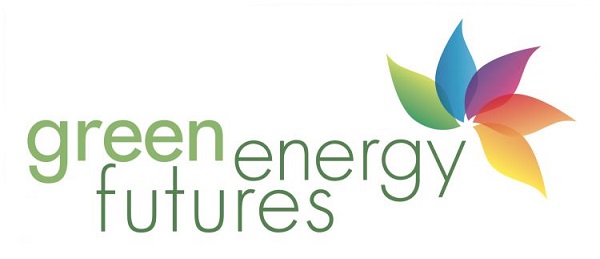
Oct. 06, 2017 | CREB
High efficiency water heaters
Smart Homes Series: Part 1 – Choosing the best high efficiency water heater
Green Energy Futures’ new four-part Smart Home Series features videos, podcasts, blogs and photos that cover today’s high-profile areas in home efficiency.
Read the first blog post below and keep your eye open for more content from the Smart Home Series this fall!
By David Dodge and Scott Rollans
A typical hot water heater accounts for about one fifth of the energy used in most Canadian homes. Choosing the right hot water heater, therefore, can have a huge impact both financially and environmentally—especially as energy prices and carbon levies continue to rise.
Many of us still choose conventional, gas-fired hot water tanks, because they’re cheapest—or, are they? Over its lifespan, the initial price of your hot water heater can represent as little as 12 per cent of its overall cost. The other 88 per cent is energy.
For that 88 per cent, we wanted to get the biggest bang for our buck. So, we asked Ken McCullough of Think Mechanical to walk us through three high-efficiency choices: conventional-style high-efficiency power-vented tank, on-demand tankless, and hybrid heat pump.
“The more people you have in your home, the more hot water you’re going to use,” McCullough observes. “It’s important to know that you have the highest efficiency that you can possibly have. Otherwise, you’re just throwing money out of the window.”
Super-efficient water heater nirvana
These days, hot water heaters all come with an “energy factor” rating, or EF. A tank with an EF of 1.00 would be perfectly efficient—with all the energy being converted to hot water. This factor is often expressed as a percentage. A standard tank has an efficiency rating of about 60-65 per cent, meaning 35 to 40 per cent of the energy goes up the flue, or radiates out as the water sits in the tank.
You’ll also want to look at your new system’s recovery rate—the rate at which it can heat the fresh water flowing into the tank. The higher the rate, the less likely you are to run out of hot water during heavy use. Here we present three great choices for dramatically increasing the efficiency of your water heater.
High efficiency power-vented Water Heater
If you’re reluctant around new technology, you might consider a high-efficiency power-vented tank. It looks like an old-school water heater, complete with a 50 gallon tank, but it’s side-vented (like a high-efficiency furnace) to decrease heat loss. This helps boost its efficiency to 90 per cent—or, about 30 per cent more efficient than a traditional tank. Meanwhile, its very high recovery rate, 80 per cent in one hour, will help keep the hot water flowing. You can get a 79 per cent efficient model for $2,700, but the highest efficiency model we looked at clocked in at over $4,800 installed.
Tankless on-demand Water Heater
We were particularly interested in an on-demand tankless hot water heater. As the name suggests, this heater kicks in only when you turn on the hot water tap, heating the water as you use it rather than storing it in a tank. It heats the water quickly enough to provide an endless supply, assuming you’re not using a lot of hot water all at once (say, washing clothes and running the dishwasher while you shower). “You’re going to turn on your tap, and you’ll get hot water,” McCullough says.
With an efficiency ratings of 95-97 per cent, this is the highest efficiency available in a natural-gas water heater. At 95 per cent efficient and priced at $3,700 installed, our choice is more expensive than a conventional water heater, but the long-term savings more than balance that out. And, because there’s no tank, the system frees up a lot of space in your furnace room.
Heat Pump Water Heater
McCullough also showed us the state of the art in efficient water heating: a hybrid heat-pump hot water tank. It looks like a conventional tank, but with a cap on top containing a heat pump. The heat pump draws heat from the air in the (normally very warm) mechanical room—like a refrigerator in reverse—and transfers that heat to the water. This allows the heater to achieve an efficiency rating of 330 per cent, meaning the heat energy transferred to the water is more than triple the amount of electricity consumed.
Because the heat pump water heater is entirely electric, it is perfect for net-zero homes with no gas hookup (meaning you also save $60/month on gas-line administration and delivery charges). Some early adopters are choosing these in conventional homes as well. McCullough quotes $4,400 for this option, making it slightly cheaper than the high-efficiency power-vented tank. The one downside is its relatively slow recovery rate of just 80 liters (21 gallons) per hour.
A good contractor can help you balance your needs, your budget, and your environmental goals, helping you make the right choice. He or she will also bring pride of work to the installation itself. Shop around and read product reviews—and, remember: spend more up front and save more over the life of the water heater.
Click here to find out which water heater we chose.
The Smart Home series was created by GreenEnergyFutures.ca for the Alberta Emerald Foundation with financial support from the Alberta Real Estate Foundation.




